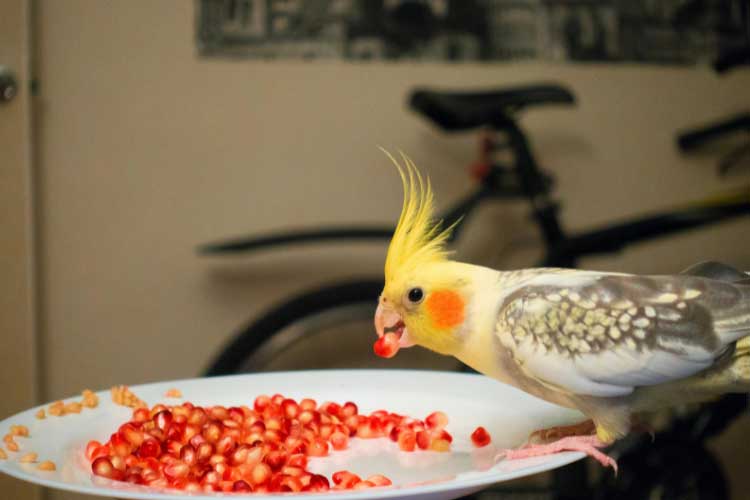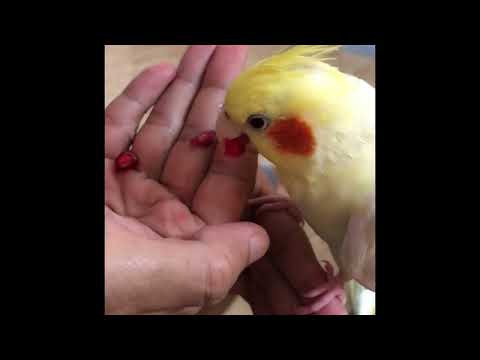Pomegranate is perhaps one of the most nutritious fruits you can find. But can you feed this tasty fruit to your pet cockatiels? This blog post has answers to all your questions.
So, can cockatiels eat pomegranate? Yes, cockatiels can eat pomegranate because it is a very healthy fruit with many beneficial nutrients. And unlike certain fruits whose pits and seeds are dangerous, pomegranate seeds are a source of antioxidants. Therefore, cockatiels can eat the whole pomegranate.
But how much pomegranate should your feathery friend eat? Continue reading to find out.
Can You Feed Pomegranate to Cockatiels?
Yes, you can feed pomegranate to your pet cockatiels because these social eaters need a varied diet. In fact, it is a very healthy snack for these feathered companions as long as they eat it in moderation. This is because the fruit is very rich in antioxidants and packs a lot of other essential nutrients such as:
- Vitamin C
- Potassium and folate
- Vitamin K
- Vitamin E
- Fiber
- Vitamin A
- Vitamin B6
You see, in the wild, cockatiels typically feed on fruits, seeds, grains, vegetables, and leafy greens. And since pomegranate is a fruit full of seeds, you can give them the entire fruit, including the skin and seeds. Even better, you could blend the fruit and give it to your bird as juice. You just add the pomegranate juice to their water dish.
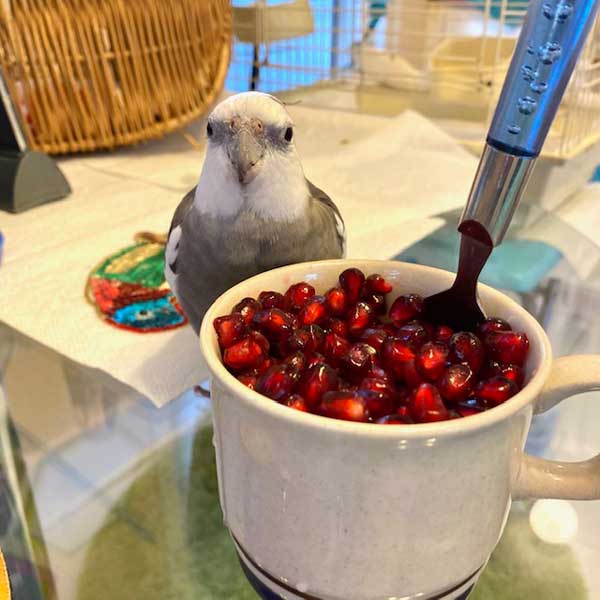
Or, you can freeze the seeds and give them to your feathery friend as a treat. After all, pomegranate is different from other fruits whose seeds and pits are deemed toxic for these bird species. However, you must remove the white pulp of the fruit because it is somehow bitter.
That said, before feeding this nutritious fruit to your feathery friend, you must wash it thoroughly with fresh water. This is to rid any residue chemicals like pesticides from the pomegranate skin. More importantly, you should introduce it to your bird’s daily diet gradually as you track their reaction.
Also worth mentioning is that this juicy fruit contains significant amounts of sugar content and fiber. Because of this, your feather friend should eat the fruit in moderation. In other words, you should only give pomegranates to your cockatiels as an occasional treat. Too much of it could lead to weight gain because of the sugar content.
Do Cockatiels Like Pomegranate?
Yes. Most cockatiels enjoy eating pomegranate as part of their healthy diet. This is perhaps because the seeds and juice of pomegranate have a sweet flavor when ripe. Not to mention, the fruit provides these bird species with quick energy.
Health Benefits for Cockatiels Eating Pomegranate
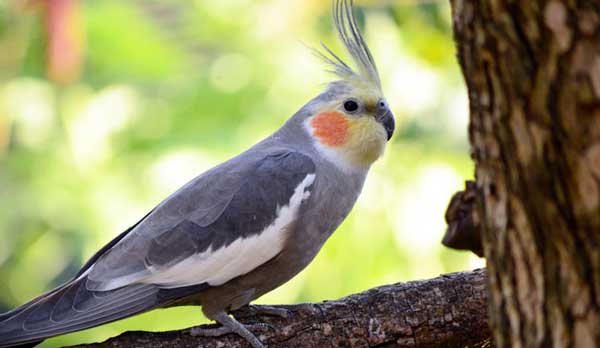
Similar to most citrus fruits your cockatiels can eat, pomegranate also offers many health and nutritional benefits. These include:
- Improves digestion
- Boosts immune system
- Excellent for your bird’s heart health
- Reduces oxidative stress
- Regulates blood pressure and heart rate
- Keeps the bird’s beak healthy and strong
- Anti-inflammatory benefits
How Much Pomegranate Should Cockatiels Eat?
Your cockatiel’s diet should not comprise more than 10-20% of fruits, nuts, and seeds. Therefore, you should feed your feathery friend just a few pieces of pomegranate a day rather than the whole fruit.
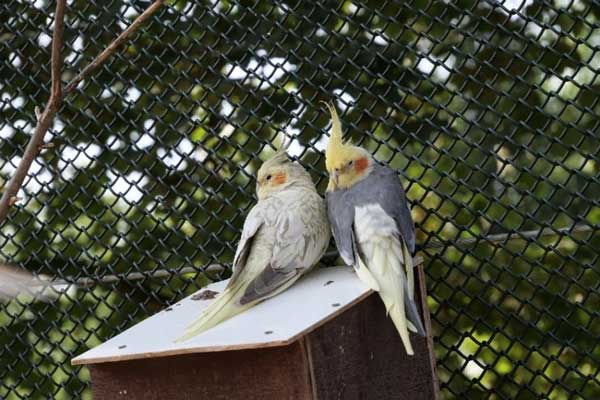
How Do You Prepare Pomegranate for Cockatiels?
You start by washing the fruit with clean water. Then, slice your pomegranate in half and remove the seeds. After that, put a small handful of the seeds in a separate dish and feed them to your cockatiels. As for the flesh, you cut it into smaller chunks and give them whole to your pet bird or blend them into juice.
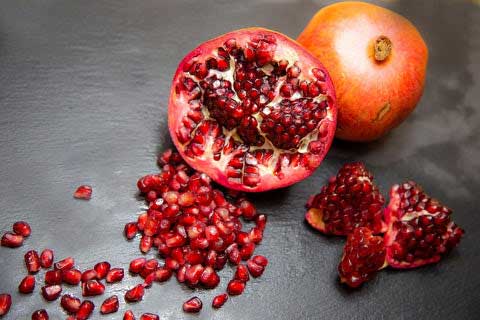
Can You Feed Pomegranate to Baby Cockatiels? If so, how?
Yes, you can once you have started weaning the baby cockatiels as part of their balanced diet. However, you should flatten the seeds before serving. As for the rest of the fruit, you simply chop it into small pieces and hand-feed them to the bird. You can also feed them pomegranate juice.
Below is a video of a cockatiel being hand-fed pomegranate seeds and it seems to be enjoying them.
How Do You Feed Pomegranate Juice to Cockatiels?
You simply blend the pomegranate fruit, including the seeds. Then, pour the pomegranate juice in a separate dish. Alternatively, you can use store-bought pomegranate as long as it does not contain added sugar or additives.
FAQ
Interested in learning more about feeding pomegranates to cockatiels? We will walk you through some of the frequently asked questions.
No. There are some fruit seeds and pits you should never feed to your feathered friend because of adverse reactions. These include apple and pear seeds, nectarine, peach, and apricot pits.
Besides pomegranate, your adult cockatiels can eat a variety of fresh fruits like blueberries, pineapples, bananas, kiwi, papaya, and melon.
Outro
Now you know it’s safe to feed your pomegranate to your cockatiels as part of their balanced diet. After all, they like this juicy fruit which offers many health benefits. The important thing is knowing how much of this fruit to feed your active birds and how to prepare it.
Do you know if your cockatiels can eat blueberries or mealworms? Read our articles about it to learn more.
